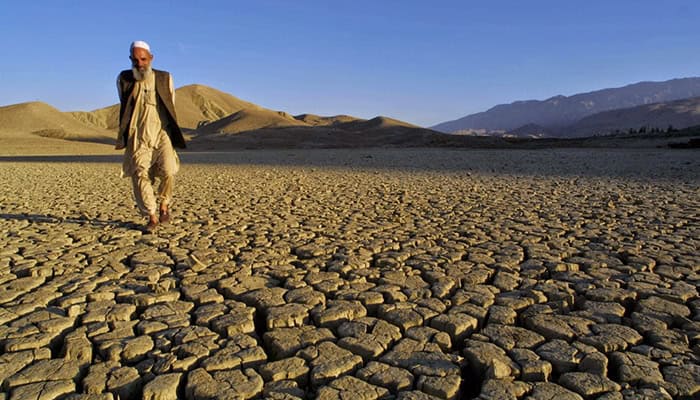Pakistan is one of the least contributors to the greenhouse gas emissions but remains among the topmost affected countries by climate change according to the Global Climate Risk Index. Therefore, it continues to experience economic and human losses worth billions of dollars.
The international community realized the growing issue of climate change and to address it, the United Nations Convention on Climate Change (UNFCCC), an international environmental treaty, was created in 1992. It is the only international climate policy framework, which is aiming to stabilize the global greenhouse gas emissions in the atmosphere. Every year, nations meet twice a year in the UN’s climate change conferences to advance the global climate policy and agenda. However, in the annual meeting of 2015, all the nations agreed to transform their development trajectories in order to set a course towards a sustainable future. This is now commonly known as the Paris Agreement. Under the Agreement, the collective aim is to limit the global temperature increase to between 1.5 and 2 degrees Celsius above the pre-industrial levels. The nations are also required to have their climate action plans called the Nationally Determined Contributions (NDCs), which embodies their efforts to reduce national emissions and adapt to the adverse effects of climate change. These climate actions of the countries will determine if the world will be able to limit the warming of the earth set under the Agreement or not.
However, a large part of the international climate change debate is if the global increase in temperature should be allowed to increase to 2 degrees above the pre-industrial level. The report by Intergovernmental Panel on Climate Change (IPCC), that reveals the disastrous effects if the upper limit of the Agreement is hit, has largely stirred this discussion. This has also been one of the most discussed topics in the ongoing climate conference in Germany, not only in the negotiating sessions with government representatives but also in the side events, which are conducted by various organizations. Wills Agricole, Principal Secretary for Energy and Climate Change, Seychelles during the event endorsed the idea of higher reduction ambition and said, “We are from Seychelles and we are ready to step up our NDCs in 2020.” Fernanda Carvalho, Global Policy Lead – Climate and Energy Practice, WWF International explained the importance on NDC enhancement and said, “While there is no formal space for NDCs, they still need to be discussed with mitigation and finance. The countries need to announce enhanced NDCs by 2020 with respect to 1.5 degree target.”
Being a part of the Paris Agreement, Pakistan’s Ministry of Climate Change submitted its first intended NDC in 2016, which is aligned with country’s strategic plan, the ‘Vision 2025’ that serves as the critical guidepost for the development of an effective roadmap to reach national goals. Pakistan is projected to increase its greenhouse gas emissions by 400 per cent till 2030. However, under the intended NDCs, Pakistan commits to reduce these projected emissions by 20 per cent, subject to receiving USD$40 billion from the international community; it also requires USD$ 7-14 billion a year for adaptation.
However, Pakistan is submitting revised NDCs by 2020, with enhanced climate change ambitions. To develop more robust NDCs, the Ministry has arranged several stakeholder sessions with various ministries, provincial governments departments, donors and development partners to refine the already identified NDC-related priorities, needs and quantification of progress.
The NDCs is a living document and the Ministry of Climate Change now uses it as the baseline for its climate change-related policies, plans and interventions. A roadmap has also been developed for its implementation, which serves as an entry point for the government to elaborate on an implementation framework and which will aid in coordinated climate actions in Pakistan.
Pakistan is committed to all the objectives of UNFCCC and has been prioritizing the issue of climate change and sustainable development in its plans, policies and actions. Through its efforts, the government of Pakistan is reiterating the importance of an inclusive approach and the need for tailored solutions for addressing the issues of climate change. However, national efforts alone are not going to be enough to deal with the grave issues that already exist and will only exacerbate in the future if left unaddressed appropriately. Financial and technical assistance is greatly required from the developed world for Pakistan to not only mitigate its emissions but to also adapt to the impacts of climate change and build climate-resilient society at large.














